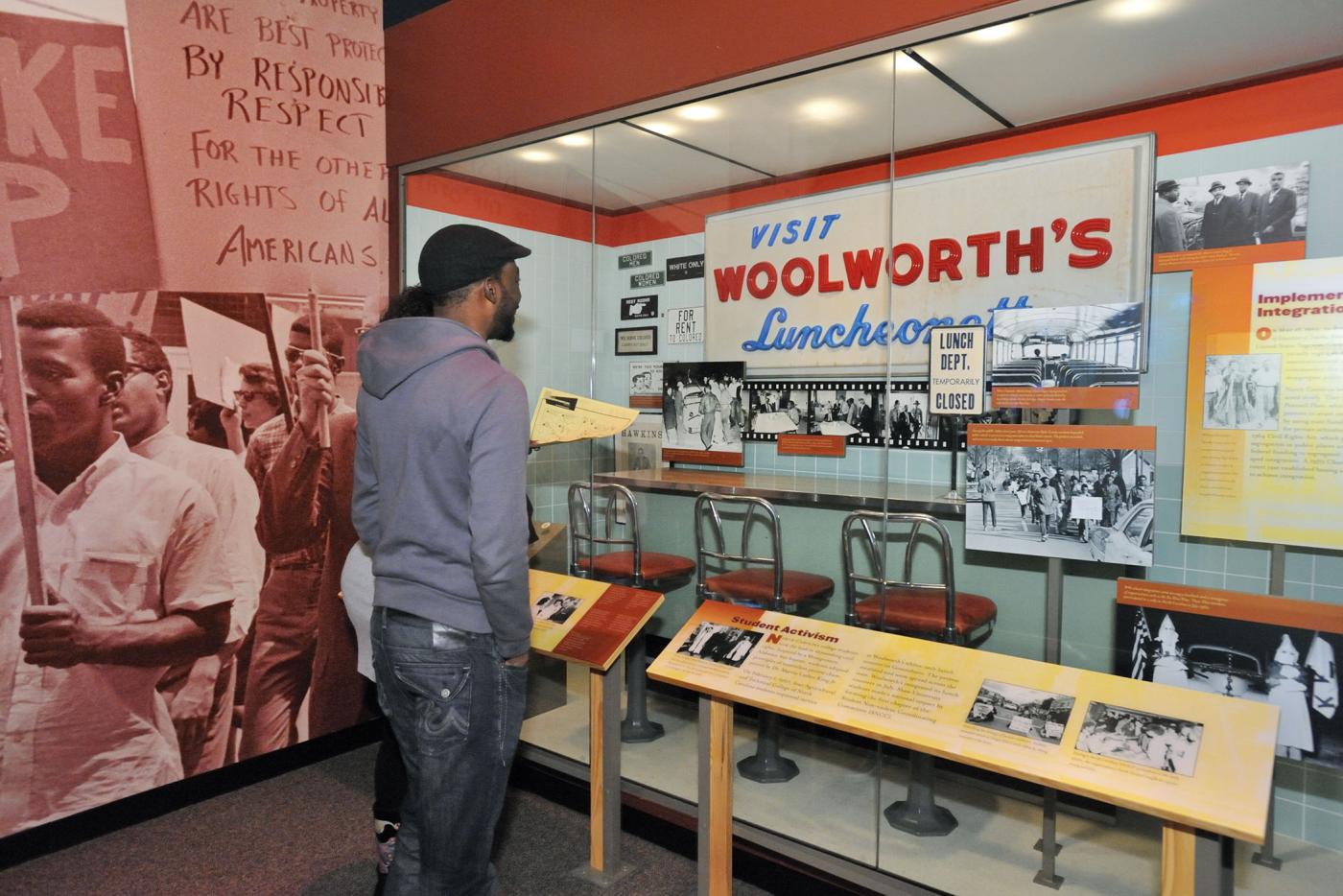From gold mining in Cabarrus County to freedom seekers joining a U.S. Navy Civil War blockade, Black History Month celebrations from the North Carolina Department of Natural and Cultural Resources (NCDNCR) will reflect the wide array of experiences of African-Americans in the state and nation. Governor McCrory announced today the lineup of programs that honor the 2016 Black History Month theme, “Hallowed Ground: African-American Memories.”
“North Carolina can boast of many African-American accomplishments that include great musicians such as Thelonious Monk and Billy Strayhorn, artists such as Romare Bearden and John Biggers, the economic powerhouse of Black Wall Street in Durham and the civil rights activists of the Greensboro sit-ins and the Student Nonviolent Coordinating Committee,” notes Governor Pat McCrory. “These inspirational individuals have helped make our state and nation great.”
Black history is commemorated every day at museums and historic sites within NCDNCR, and additional commemorations are planned for Black History Month this February.
“We appreciate the artistry in the buildings of enslaved craftsmen at Historic Stagville, the pride and refinement imparted at the former school now known as the Charlotte Hawkins Brown Museum and the exhibit of one of the first African-American pilots for the former Piedmont Airlines at the N.C. Transportation Museum,” explains NCDNCR Secretary Susan Kluttz. “We are thrilled to highlight African-American history from colonial times to the present. Much hallowed ground and many memories are here in our state.”
The North Carolina Museum of History jump-starts Black History Month with the January 30 African-American Cultural Celebration. The annual event will feature storytellers, dancers, filmmakers, entrepreneurs, historians, authors and craftsmen. The free, family-friendly program will be from 10:30 a.m. - 4:30 p.m. Other February programs there will feature former pilot Bill Wilkerson, Maceo Parker on funk music and the Wilmington 10.
“Black Gold: North Carolina Slavery and Reed Gold Mine” will be a tour given Saturdays in February at 1:00 p.m. at Reed Gold Mine in Midland. The tour will examine the presence and participation of the enslaved community in addition to the Germans, Scotch-Irish and Cornish settlers of Cabarrus County. There is a $2 fee and children under seven are admitted free.
“Palmer Personalities” will capture life at the esteemed Palmer Memorial Institute that now is Charlotte Hawkins Brown Museum in Sedalia. It will celebrate prominent figures from the Harlem Renaissance and Palmer alumni who made a difference in their community. Reservations are suggested for the free February 13, 10:00 a.m. or 12:30 p.m. program.
African tales about the night sky will be featured at “Stagville Under the Stars” February 19 at Historic Stagville in Durham. The staff of Stagville and Morehead Planetarium will share folk tales and telescopes for a tour of the stars. The free program is at 6:00 p.m.
The meanings and uses of African songs and dances are presented in “Dancing Stories with April C. Turner” at the Museum of the Cape Fear in Fayetteville February 6 at 2:00 p.m. Traditional West African cultural community building concepts such as working together, integrity and perseverance are affirmed. The West African Wolof language also will be introduced in the free program.
Historic Edenton will offer the “Harriet Jacobs Walking Tour – Enhanced” in February. The tour focuses on Harriet Jacobs, who escaped slavery by boat after hiding in her grandmother’s attic for seven years. She authored “Incidents in the Life of a Slave Girl” and advocated equality for women and blacks. The enhanced tour will highlight Jonathan Overton, who fought in the Continental Army, free blacks and other civil rights pioneers in the area. The tour will be Fridays at 2:00 p.m., Saturdays at 10:00 a.m. and has a $5 fee. School groups can schedule weekdays and the student fee is $2.50.
“African-Americans in the Civil War Navies” will be presented at the CSS Neuse Civil War Interpretive Center in Kinston, featuring a sailor each week. The Union Navy enlisted about 18,000 men and some blacks volunteered or were forced to serve the Confederate Navy. River pilot Robert Smalls, who stole a ship and joined the Union Navy; and Benjamin Gray, who enlisted with the Confederate Navy at age 12, will be among those featured. The information also will be posted on social media. The museum fee includes the exhibit, and is $5 for adults, $4 for seniors/military, $3 for ages three to 12 years.
The N.C. Maritime Museum at Southport will expand the “Cruising the Line: African-American Sailors” exhibit, part of a larger “Blockade Running” exhibit. A new interactive touch screen funded by the Brunswick Civil War Roundtable will examine the North Atlantic Blockading Squadron and the freedom seekers who used the Cape Fear River as part of the maritime Underground Railroad. The touch screen exhibit will examine men from the region and the vessels they served on. Museum admission is free.
Photographs, facsimiles of landmark documents and quotations by Dr. Martin Luther King, Jr., and others are presented in “The Road to the Promised Land,” an exhibit on view at the Museum of the Albemarle in Elizabeth City. The exhibit surveys from the emergence of King as a leader of the Civil Rights Movement during the Montgomery Bus Boycott of 1955 through the 1990s.
For more on these and other programs related to African American history, visit http://www.ncdcr.gov/blackhistory.

